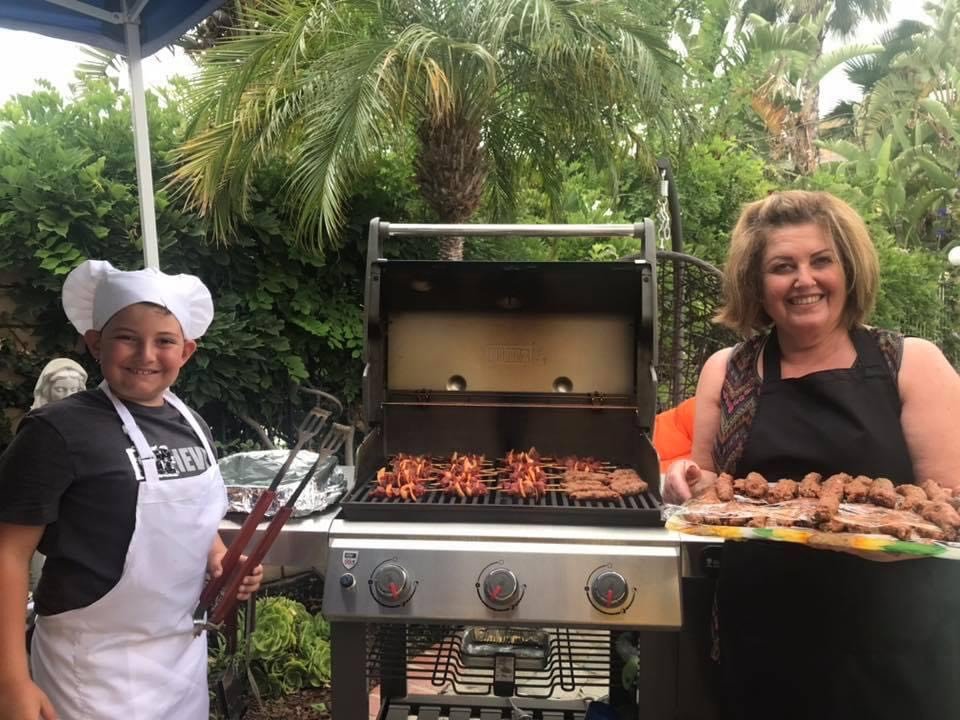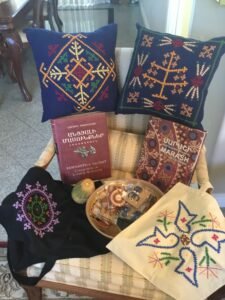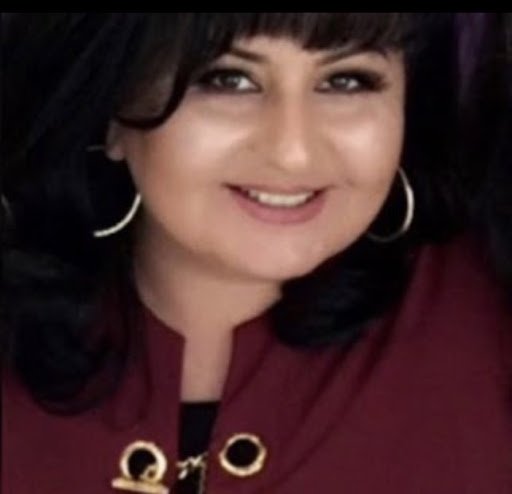Peggy Ishkhanian is the true definition of an Armenian woman. She preserves Armenian history and incorporates her immense love of being Armenian into everything that she does.
Ishkhanian was born in Eshtora, Lebanon, a village near Anjar. During the Lebanese Civil War, her family emigrated to Canada, where she met her husband and had two children. They moved to Los Angeles for better weather, and she completed her education and began teaching at Pilavjian Preschool, where she touched young lives for 24 years.
After retiring from teaching, Ishkhanian took care of her elderly parents. Her mother had cancer, and within two years, she lost both of her parents. She felt an immense void in her life and wanted to find a purpose. Because she lost her mother to cancer, and children had always been near and dear to her heart, Ishkhanian launched fundraisers for Bridge of Health, an organization based in Armenia that provides aid to children with cancer. Ishkhanian went to Armenia in 2019 to visit the children assisted by the organization. She wanted to make them happy and was very touched by the immense strength of the children and their parents.
During the 2020 Artsakh War, Ishkhanian and her friends mobilized and organized fundraisers. They began with selling pepper paste, all homemade with love. One supporter of the fundraiser who purchased pepper paste gave Ishkhanian a pumpkin from Artsakh. She planted the seeds to grow Artsakh pumpkins, which she treasures immensely.
To continue raising funds, the group started to prepare sharots (sweet sujukh), pakhlava, cakes, manti and more Armenian treats. They gave the funds to Nor Terchnots Pouyn, an organization that takes care of children of fallen heroes, started by Zabel Berberian, who repatriated to Armenia from Toronto. Ishkhanian also held cooking classes for children, which the children and their families loved. She taught the children how to make Armenian baked goods like nazook and matnakash bread, along with sourdough bread.
Along with baking, Ishkhanian collected funds by crafting Marashi artwork on tote bags, hats and other clothes. She learned the artwork of needlepoint named specifically for Marash from her mother. The needlepoint of Marash is distinct, including tiny crosses designed specifically so that the Turks would not appropriate it. This kind of needlepoint was also very popular in Britain, where it was brought by traders, Ishkhanian shared.
Ishkhanian doesn’t remember a time when she wasn’t in the kitchen either helping her mom or cooking and baking herself. She has such an innate love for the kitchen, which she calls the capital room for the family. The kitchen is the cornerstone of Armenian culture, according to Ishkhanian. She sees it as a bridge that binds together Armenians from all over the world, from Lebanon to Armenia to the United States.

Ishkhanian also worked with Engineer Armenia and Hayk for Our Heroes, two phenomenal organizations run by determined youth who are steadfast in their love of the homeland and its people. She held an event with Hayk for Our Heroes to prepare jingalov hats. Everything was prepared from scratch, and the youth realized how much work it takes to create certain foods. She felt empowered seeing the young participants and their positive energy. She felt especially honored and emotional when she met a sweet young girl from Artsakh at the event, who said that she had never tried jingalov hats.
“The Diasporan Armenian is deprived of their own land and water due to the Armenian Genocide. My two great aunts froze to death, but my great uncle was saved by the French. My grandfather was killed by the Turks,” Ishkhanian said. Her family went from Marash to Adana and finally settled in Damascus. “The enemy has always tried to eradicate us, even today. Knowing the history of my family and my people has made me even more determined to keep our beautiful Armenian culture alive,” she added.

Ishkhanian is grateful to God that she can use her talents to help her people. She feels proud of her family and friends who have stood by and encouraged her.
Armenians feel devastated in light of what has happened to Artsakh, but what truly breaks Ishkhanian’s heart is the indifference of some. Armenians lost an entire generation and their ancestral and holy lands, reminiscent of the Armenian Genocide, Ishkhanian reflected. She calls on all Armenians to stand at the side of the people of Artsakh, so that they know they are not alone.
She also called for an internal revival of Armenian culture, stating that Armenians owe it to their ancestors and descendants to carry the torch. She remembers one teacher who said to her, when you speak Armenian, there is a sweetness around your lips. “Dear parents, it is our duty and responsibility to keep our culture alive and thriving. We will only survive if we protect our land, our culture and our language. The Armenian kitchen is just as much a part of our culture as our songs and dances. The enemy doesn’t want our culture to thrive. Therefore, we must do everything to preserve our heritage,” she said.
Each and every person has a gift that they can bestow to Armenia’s heritage and homeland and to the upcoming generations. Ishkhanian is a wonderful example.



Be the first to comment